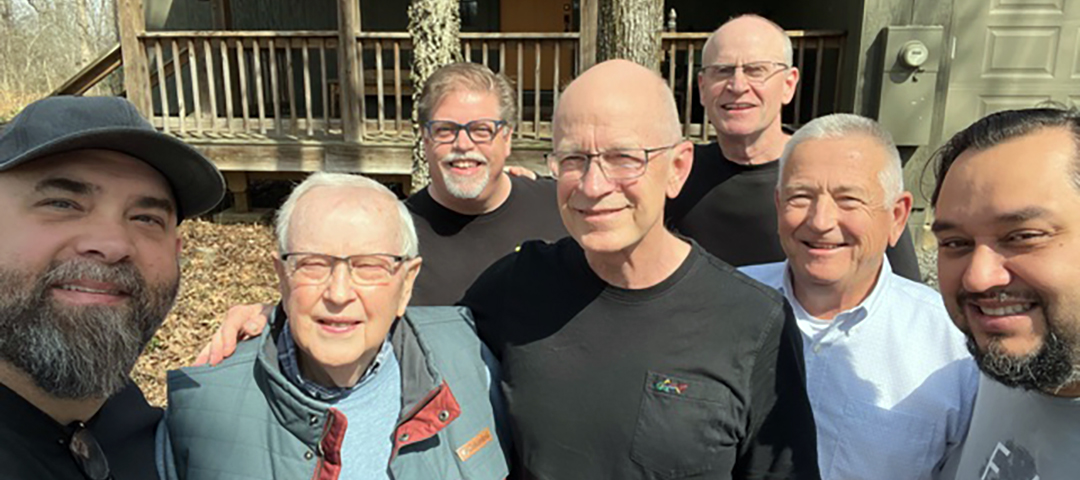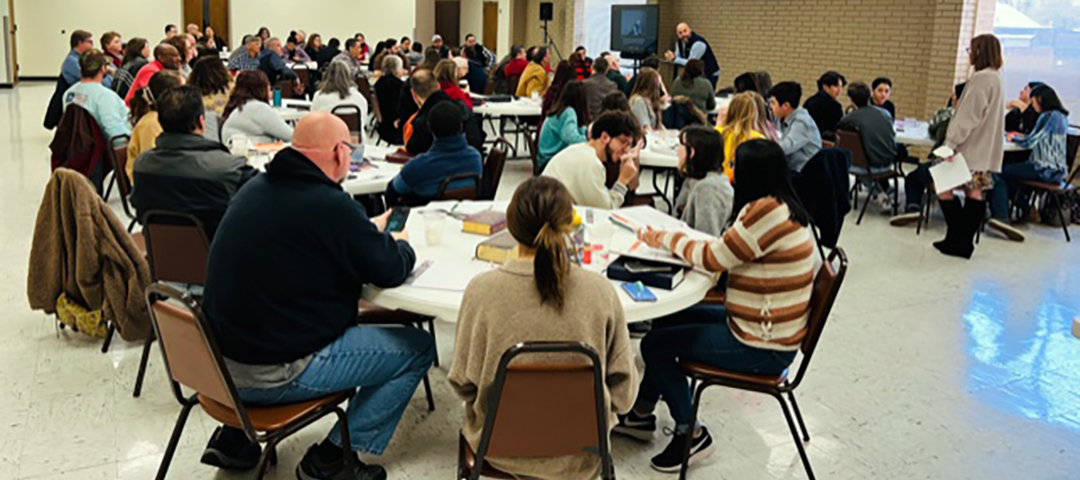
Church Revitalization and Discipleship at South City Church: Part One
July 12, 2022
Church Revitalization and Discipleship at South City Church: Part Two
July 19, 2022On December 1, 1913, Henry Ford installed the first moving assembly line for the mass production of the automobile. With this new method, what once took twelve hours now took less than two hours. Cars were being produced faster than the paint could dry. Today, Ford’s assembly line has been improved by automation, computers, and machines replacing the cost, error, and slowness of human labor.
That’s great for production. That’s great for a company whose bottom line is margin. But mass production is a bad model for Christian discipleship. Unfortunately, there are a lot of churches today that think of discipleship in terms of Ford’s assembly line factory. Books, videos and a one-size-fits-all program . . . let’s just churn out disciples as quickly and effortlessly as possible.
Scripture teaches that discipleship is less assembly line and more artisanship. Assembly line is rapid reproduction. Artisanship is relationship. Assembly line is about quantity. Artisanship is about quality. Jesus’ key words on discipleship must not be overlooked. “Go and make disciples . . . teaching them to say a simple prayer so we can have as many converts as quickly as possible.” Oops, that’s not what he said. Let me try again. “Go and make disciples . . . teaching them to observe the really easy things that everyone will agree to so we can get more converts.” Oops again! Jesus is specific about who we are to make disciples of: all nations. He is also explicit about what a true disciple looks like: “teaching them to observe ALL things.”
The “observation of all things” takes time, commitment, and effort. Easy discipleship may be a mark of the modern church, but it is not how Jesus described and demonstrated discipleship. Easy discipleship is what Dietrich Bonhoeffer called “cheap grace.” In his book, “The Cost of Discipleship, Bonhoeffer states, “Cheap grace is the preaching of forgiveness without requiring repentance, baptism without church discipline, communion without confession . . . cheap grace is grace without discipleship.”
Discipleship takes time and requires personal attention. While books and videos may be helpful tools, they must always remain supplemental to the relational. A book can’t respond to your questions. A Twitter feed can’t hold your hand when your mom has just died. A YouTube sermon doesn’t pray with you about the current problem you’re going through.
I state the above to say that discipleship-based multiplication is a slow, arduous process that cannot be outsourced. Multiplication doesn’t take place through mass conferences in a weekend; instead, it takes place through the local church as individuals daily invest in other individuals who will invest in others. It has always been this way. Take Deuteronomy 6, for example, the premier passage on family discipleship.
And these words that I command you today shall be on your heart. You shall teach them diligently to your children, and shall talk of them when you sit in your house, and when you walk by the way, and when you lie down, and when you rise.
Notice the framework for disciples as instituted by God. Moses taught fathers who taught children who were to teach their children (v. 2 – your son’s son). It was both individual and intensive. Individual in that fathers were to teach sons who were to teach their sons. Intensive in that it was diligent, daily teaching (when you sit, when you walk, when you lie down, when you rise).
Fast forward to the New Testament, and you find this pattern persisting. The concept of Old Testament family discipleship is extended to New Testament spiritual family discipleship. Think of the family terms used in the New Testament. Jesus calls those who do the will of the Father, brother, sister, and mother. John is called Mary’s son. Paul is a father to the church in Corinth. Timothy is Paul’s son in the faith. Fellow Christians are called brothers and sisters, members of the household of God. The family discipleship in the Old Testament is the church family discipleship that takes place in the New Testament.
Turn to 2 Timothy 2:2, and you find the same pattern instituted in Deuteronomy 6:7.
What you have heard from me in the presence of many witnesses entrust to faithful men, who will be able to teach others also.
It is individual. Notice the four generations.
- Deuteronomy: Moses, Fathers, Sons, Son’s son.
- 2 Timothy: Paul, Timothy, faithful men, others also.
This is how discipleship-based multiplication is to work. Mature Christians investing in faithful Christians who will invest in other faithful Christians. Slow but effective!
It is intensive. Timothy is to follow Paul’s pattern. What was that pattern? Paul did not cease night or day, from house to house to admonish every one with tears (Acts 5:42, 20:31). That sounds a lot likewhen you sit, when you walk, when you lie down, when you rise.
This is exactly what you find in the life and ministry of Jesus. He invested in a few people (individual) that he spent three years with, sitting, walking, lying down, and rising to repeat that daily process of discipleship (intensive). Of course, automatically, you see the “flaw” in this system. It’s a slow, arduous process. There are no shortcuts in the kingdom. If it took Jesus three years, why would we expect to do it in three days? Let us throw out that assembly line idea of discipleship and commit to the hard work of investing in individuals who will invest in others also. As Paul told Timothy, “It’s the hardworking farmer who ought to have the first share of the crops.” The farmer is hardworking and hopeful because he has seen the process work. Even though he can’t see the seed doing anything, he keeps watering because he trusts the process. If we, like the farmer, put in the hard work, there will be a lot of praying and waiting and trusting in the LORD to grow fruit from the unseen sown seeds. But it is hopeful waiting, trusting in the promise that at a proper time we will reap a harvest if we do not give up.

